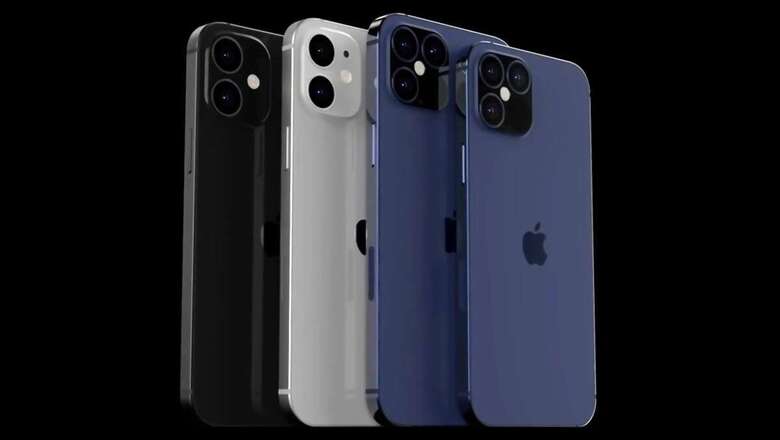
views
Apple iPhone 12 has been simmering among top searched keywords for a while. However, last night, on Tuesday, September 15, Apple hosted a hardware event that featured practically everything, but the much awaited iPhones. This caused some amount of furore among many Apple watchers regarding the potential delay in the launch timeline of the iPhone 12. However, it is important to note that the iPhone 12 has been expected to be postponed from its usual launch timeline for a while now, so it really wasn’t that big a surprise when Apple only featured its 8th gen iPad, the all-new iPad Air, Watch Series 6, Watch SE and subscription services at the Time Flies event last night.
The Covid-19 pandemic
Typically, Apple launches its iPhones in the first or second week of September. It subsequently goes up for preorders, and is up for sale towards the end of September or the first week of October. While the ‘Time Flies’ event fell almost within Apple’s natural period of launching devices, reports from the past few months had already indicated a possible delay in the launch of Apple’s latest iPhones. At the centre of it, of course, is the Covid-19 pandemic.
At the outbreak of the pandemic in China, as most major factories were shut down and extensive lockdown brought industries to a halt, Apple faced an unprecedented setback in its manufacturing timeline. Typically, the February-March period is by when Apple’s next generation iPhones are cleared through the engineering validation testing (EVT) stage, and enters production stage. It is this key phase that was delayed, due to restrictions in travelling causing Apple executives to have limitations in coordinating with their production and supply chains, and of course, factories staying shut.
As factories reopened, Apple focused on its business to stock up on more of its ‘affordable’ iPhones, such as 2018’s iPhone XR, or this year’s iPhone SE. Subsequently, Apple also stated back in February that it was lowering its revenue guideline, as resumption of normal market conditions was taking longer than what it had anticipated. As a result, most analysts reduced guidance figures for Apple’s 5G ready iPhones, and the iPhone 12 took a back seat to make way for more value-first iPhones.
5G chips
It isn’t just about the production timeline, either. Earlier this year, Qualcomm stated that it expects a slight delay in the launch of a marquee 5G iPhone later in the year, which most analysts took to be the iPhone 12. The resultant delay may also have happened as an indirect effect of the pandemic, which would have stifled Qualcomm’s supply of 5G radio chips to Apple – a feature that is imperative for the 5G iPhones to enter production stage.
Apple and Qualcomm cleared their differences last year in a billion-dollar settlement suit, which in turn gave Apple the licence to use Qualcomm’s 5G chips in its first 5G iPhones – the iPhone 12 lineup. While Apple had subsequently acquired Intel’s 5G modem business as well to make its own 5G radio chips, something that’ll only feature in future iPhones. For now, however, the delay in the component manufacturing chain is likely to have also pushed back the launch of the iPhone 12 by about a month.
When will it launch?
The iPhone 12 is now expected to be launched in a separate event in October, but hopefully not later than that. Apple reportedly expects to manufacture about 75 million units of the iPhone 12 for this year’s last quarter. iOS 14, the latest version of Apple’s software, has been rolled out for users today already, so you can at least get a glimpse of the new iPhone’s interface on your older devices, too.
















Comments
0 comment